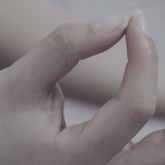

References
1) Demers, N. E., & Bayne, C. J. (1997). The immediate effects of stress on hormones and plasma lysozyme in rainbow trout. Developmental & Comparative Immunology, 21(4), 363-373.
2) Vrijkotte, T. G., Van Doornen, L. J., & De Geus, E. J. (2000). Effects of work stress on ambulatory blood pressure, heart rate, and heart rate variability. Hypertension, 35(4), 880-886.
3) Mizoguchi, K., Shoji, H., Ikeda, R., Tanaka, Y., & Tabira, T. (2008). Persistent depressive state after chronic stress in rats is accompanied by HPA axis dysregulation and reduced prefrontal dopaminergic neurotransmission. Pharmacology Biochemistry and Behavior, 91(1), 170-175.
4) Decety, J., & Grèzes, J. (2006). The power of simulation: imagining one's own and other's behavior. Brain research, 1079(1), 4-14.
5) Salmon, P. (2001). Effects of physical exercise on anxiety, depression, and sensitivity to stress: a unifying theory. Clinical psychology review, 21(1), 33-61.
6) Shapiro, S. L., Carlson, L. E., Astin, J. A., & Freedman, B. (2006). Mechanisms of mindfulness. Journal of clinical psychology, 62(3), 373-386.

Stress, according to the World Health Organisation, it is called the epidemic of the 21st century. A lot of people seem to suffer from stress. But what is it? And especially, I hear you thinking, what can you do about it? I will explain!
From an evolutionary perspective stress is useful: when you encounter a life threatening situation, your body prepares to either fight or flight. The hormones adrenaline and cortisol are released and increases your heart rate, breath and blood pressure1,2.
From a 21st century perspective, a stress reaction (often) isn’t usefull at all: there aren’t as many life threatening situations as there used to be. However, workpressure, a thight schedule and stressful environmental cues can cause stress as well.
A little bit of stress is fine: it makes sure you perform well under pressure, win that sportsgame or nail your job interview.
Too much stress is not fine: our body is definitely not build for chronic stress. You can get physical complaints like stomachache, a headache and nausea. Also mental complaints like depressive thoughts, anxiety and worrying can be a result of high stress levels3. This all can lead to sleepless nights and vicious circles.
So what can you do about it?
It is important that you figure out what is causing stress. Is it a busy agenda? Annoying colleagues? Longterm fights or other problems in your private life? Can you and, most of all, do you want to change it? Yes? Change it. No? Keep reading.
The next step is making sure, that the stressor has less effect on you. How? Learn to live in the moment. Because, be honest… While you are reading this article, there is nothing to worry about, is there? Besides, when you think about your today or yesterday, I bet you can count the stressful events on one hand. This means, that you only have a few things happening in one day that that causes stress. But I bet that you have stress for a much longer period of time. This is probably the result of rumination, repeating the situation for 10 times in your head. Or maybe it is because you invented a worst-case-scenario about what may happen in the future, and you keep repeating this situation. This worrying and overthinking seems innocent, but it is the opposite. Research has proven that you activate the exact same brain regions when you think about performing something as when you are actually performing it 4. This means that the exact same hormones are released when you worry about a situation and actually performing it. So if you are having a ‘relaxed’ shower while you think about a stressful event that might happen, that shower isn’t that relaxing as you might think it is.
You can make sure you worry less by actively relaxing. For example, you can do you favorite sport5 or have a relaxing walk with friends. Besides it is important to realize what impact your thoughts can have on you and your body. It is possible to detach yourself from thoughts so that it creates the space to choose whether you want to follow them, or let them go. You can practice this by practicing mindfulness6.
Take home message
It is important to learn how and when you need to let go of thinking and to be aware of the present moment. Don’t be too hard on yourself when you notice that you are worrying about something for another half an hour. It is human and an automatic reaction to search for solutions through thinking, that is where your mind is best at. However, it is not always necessary and useful.
Wil jij gelukkig en veerkrachtig in het leven staan? Ben jij iemand die wil groeien van de moeilijke dingen (stress, emoties, gedachten) die je tegenkomt? Maar weet je niet hoe? Dan wil ik je graag helpen. Ik ben psycholoog in Nijmegen en werk met mindfulness, acceptance & commitment therapie en positieve psychologie. Neem contact op!
Anneloes Geerling
Email: positivewavescoach@gmail.com
Telefoonnummer: +316 390 244 61
Locatie: Bemmel & Nijmegen
KvK nr: 69466386
BTW-id: NL002323425B23
Rekeningnr: NL 52 KNAB 0256569789
Copyright @ All Rights Reserved